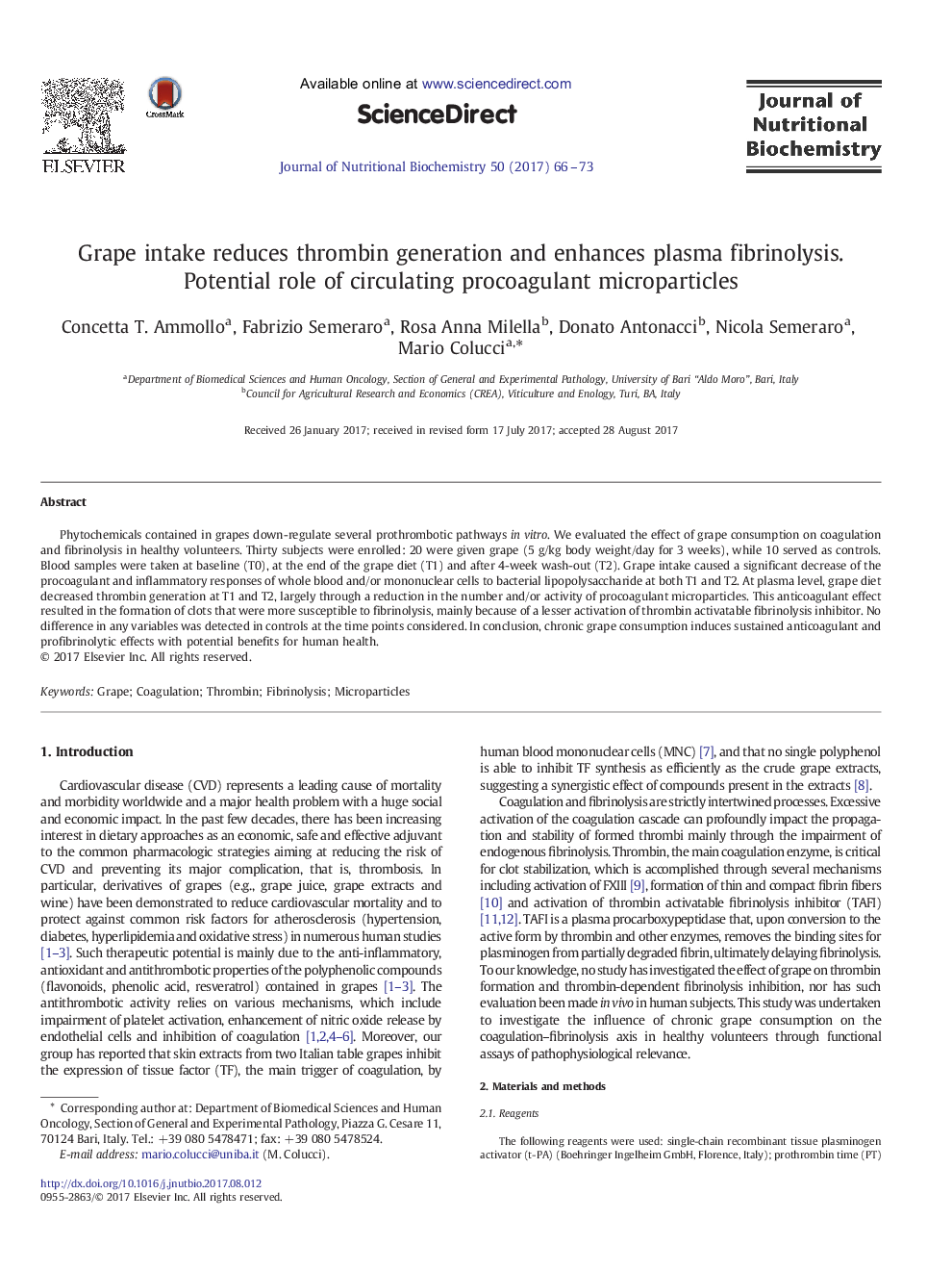| کد مقاله | کد نشریه | سال انتشار | مقاله انگلیسی | نسخه تمام متن |
|---|---|---|---|---|
| 5512769 | 1540618 | 2017 | 8 صفحه PDF | دانلود رایگان |
Phytochemicals contained in grapes down-regulate several prothrombotic pathways in vitro. We evaluated the effect of grape consumption on coagulation and fibrinolysis in healthy volunteers. Thirty subjects were enrolled: 20 were given grape (5 g/kg body weight/day for 3 weeks), while 10 served as controls. Blood samples were taken at baseline (T0), at the end of the grape diet (T1) and after 4-week wash-out (T2). Grape intake caused a significant decrease of the procoagulant and inflammatory responses of whole blood and/or mononuclear cells to bacterial lipopolysaccharide at both T1 and T2. At plasma level, grape diet decreased thrombin generation at T1 and T2, largely through a reduction in the number and/or activity of procoagulant microparticles. This anticoagulant effect resulted in the formation of clots that were more susceptible to fibrinolysis, mainly because of a lesser activation of thrombin activatable fibrinolysis inhibitor. No difference in any variables was detected in controls at the time points considered. In conclusion, chronic grape consumption induces sustained anticoagulant and profibrinolytic effects with potential benefits for human health.
Journal: The Journal of Nutritional Biochemistry - Volume 50, December 2017, Pages 66-73
